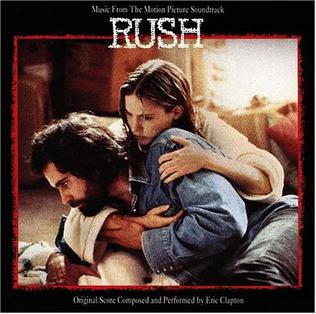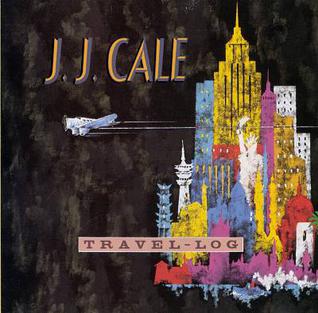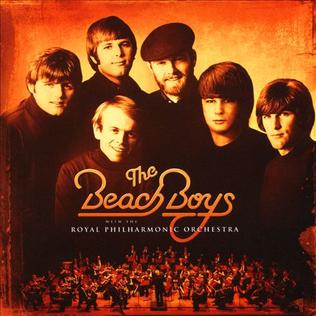
John Weldon "J. J." Cale was an American guitarist, singer, and songwriter. Though he avoided the limelight, his influence as a musical artist has been acknowledged by figures such as Neil Young, Mark Knopfler, Waylon Jennings, and Eric Clapton, who described him as one of the most important artists in rock history. He is one of the originators of the Tulsa sound, a loose genre drawing on blues, rockabilly, country, and jazz.

Building the Perfect Beast is the second solo studio album by American rock singer Don Henley, released on November 19, 1984, by Geffen Records. A commercial and critical success, it is generally regarded as the culmination of the smoother, more adult-oriented sound of Henley's solo work.

Troubadour is the fourth studio album by J. J. Cale, released in September 1976.

Rush is the soundtrack album for the 1991 film of the same name. Written and performed by Eric Clapton, the soundtrack album includes the song "Tears in Heaven," which won three Grammy awards in 1993.

The Road to Escondido is a collaborative studio album by J. J. Cale and Eric Clapton. It was released on 7 November 2006. Contained on this album are the final recordings of keyboardist Billy Preston. The album is jointly dedicated to Preston and Brian Roylance.

Really is the second studio album by J. J. Cale, released on December 4th 1972.

5 is the fifth studio album by J. J. Cale, released in August 1979.

Grasshopper is the seventh studio album by J. J. Cale, released in March 1982.

The Tractors is the debut studio album by American country music band the Tractors. Released in August 1994 on Arista Records, it set a record for becoming the fastest-selling debut album by a group to achieve Recording Industry Association of America platinum certification in the United States; by the end of the year, it was certified double platinum, and became the highest-selling country album of 1994. The tracks "Baby Likes to Rock It", "Tryin' to Get to New Orleans", and "Badly Bent" were all released as singles. "Baby Likes to Rock It" was the only one to reach the top 40, peaking at number 11 on Hot Country Songs.

Deadicated: A Tribute to the Grateful Dead is a 1991 tribute album with music of the Grateful Dead performed by various artists.

Organic is the fifteenth studio album by Joe Cocker, released on 14 October 1996 in the UK.

Roll On is the fourteenth studio album by American singer-songwriter J. J. Cale, released on February 24, 2009, through Rounder Records. All songs were written by Cale; they include "Who Knew", "Former Me", and "Roll On", the last of which is a collaboration with Eric Clapton. Some tracks were recorded at sessions at David Teegarden's studio, north of Tulsa, Oklahoma, in 2003.

To Tulsa and Back is the thirteenth studio album by American singer-songwriter J. J. Cale, released on June 8, 2004.

Shades is the sixth studio album by J. J. Cale, released in February 1981.

#8 is the eighth studio album by American musician J. J. Cale, released in 1983.

Travel-Log is the ninth studio album by J. J. Cale. It was released on November 6, 1989, through Silvertone Records.

Number 10 is the tenth studio album by American singer-songwriter J. J. Cale, released on November 10, 1992.

Will O' the Wisp is the sixth studio album by Leon Russell. The album was released in 1975 on Shelter Records. It peaked at No. 30 on the Billboard albums chart and remained on the chart for 40 weeks. The album cover was designed and illustrated by artist/actor Gailard Sartain.

The Beach Boys with the Royal Philharmonic Orchestra is a 2018 album of remixed Beach Boys recordings with new orchestral arrangements performed by the Royal Philharmonic Orchestra. It was produced by Nick Patrick and Don Reedman, who conducted similar projects for Roy Orbison and Elvis Presley.

Stop All That Jazz is an album by singer and songwriter Leon Russell. The album was recorded in 1974 at Russell's House Studio in Tulsa, Oklahoma; Paradise Studios in Tia Juana, Oklahoma; Pete's Place in Nashville, Tennessee; and Shelter The Church Studio, in Tulsa. Stop All That Jazz is Russell's sixth solo album.




















